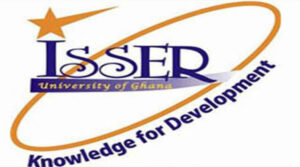Ghana government urged to strengthen institutional framework to address issues in energy sector
 Reverend Professor Adobea Yaa Owusu, Associate Professor at the Institute of Statistical, Social and Economic Research, (ISSER) has recommended to Government to strengthen national institutional and regulatory frameworks to help address challenges associated with trajectories of Ghana’s solar energy development.
Reverend Professor Adobea Yaa Owusu, Associate Professor at the Institute of Statistical, Social and Economic Research, (ISSER) has recommended to Government to strengthen national institutional and regulatory frameworks to help address challenges associated with trajectories of Ghana’s solar energy development.
She noted that increasing the use of non-renewable energy sources in the generation of electricity, lack of technical, financial, and human resources, weak institutional and regulatory frameworks and socio-political barriers prevented the country from fully exploiting its solar energy potential.
Rev Prof Owusu, who is also a Minister of the Presbyterian Church, Ghana, made the call when she spoke on the topic “Overview of the Ghana Social- Development Outlook,” at a roadshow held at Winneba.
The event, on the theme: “The State of Ghanaian Economy Report and Ghana’s Social Development Outlook,” was put together by ISSER, under the auspices of the College of Humanities, University of Ghana, Legon in collaboration with the Faculty of Social Science Department of the University of Education, Winneba (UEW).
The occasion was also used to present the Ghana Social Development Outlook book, published by a team of researchers mostly from ISSER and led by Rev Prof Owusu and others.
Among the personalities who attended the programme were members of Effutu Traditional Council led by Neenyi Ghartey VII, Effutu Omanhen; Deans, Heads of Department, Staff, lecturers, and students of UEW, Effutu Assembly Members; Alhaji Zubeiru Kasim, Effutu Municipal Chief Executive and officials from ISSER.
The Ghana Social Development Outlook has seen series of editions that captured a lot on social development of the country.
The presentation also focused on the 2020 edition which is the most recent edition of the biennial publication.
According to Rev Prof. Owusu, the book covered 10 thematic areas which was of importance to the social development of Ghanaian education, health water and sanitation, housing, work and employment, energy, governance, environment, social values, and gender.
She informed the gathering that the topic on energy focused on trajectories of solar energy development in Ghana, drivers and barriers of pre-COVID-19 and beyond, progress in several regulations, renewable energy and renewable energy master plan.
She said there must be interventions including, solar powered hand washing basins locally, sourced materials with automatic sensors to promote personal hygiene to enhance compliance with COVID19 protocols and the need to enhance security and political environment to attract investment and as well to sensitize the citizenry to increase the usage of solar energy.
She schooled the participants on education, health, water and sanitation, examined the COVID-19 outbreak and its management, issues on sustainable housing in Ghana, work and employment (on Homework and Homeworkers in the era of this COVID-19, Governance with regard to the anti-Corruption fight.
The environment in Ghana, gender equality, social values, press freedom and crime, challenges and progress in the country are all captured in the book.
According to her, other recommendations were leveraging on ICT to expand distance learning programmes, public private partnership for infrastructure expansion to address some of the challenges in the Education sector.
On health, it was recommended that the Government of Ghana, Ghana Health Service and Allied Agencies set up mental health and clinical psychology services and to facilitate total health care and the intensification of scientific and social research on water and sanitation.
They called for more commitment by all sub-actors with rigorous reforms at the institutional level accompanied by enforceable planned polices to curb open defecation.
Prof. Lucy Effeh Attom, Dean of Faculty of Social Sciences at UEW, said the event was to disseminate the exercise conducted by the researchers and to deliberate on pertinent global developmental issues with reference to Ghana economic.
She stated that Ghana had been at the crossroads of charting a self-sustaining path to development long ago and it was about time key stakeholders in national development and academic discourse refocused towards accelerated development interventions.
Source: GNA
